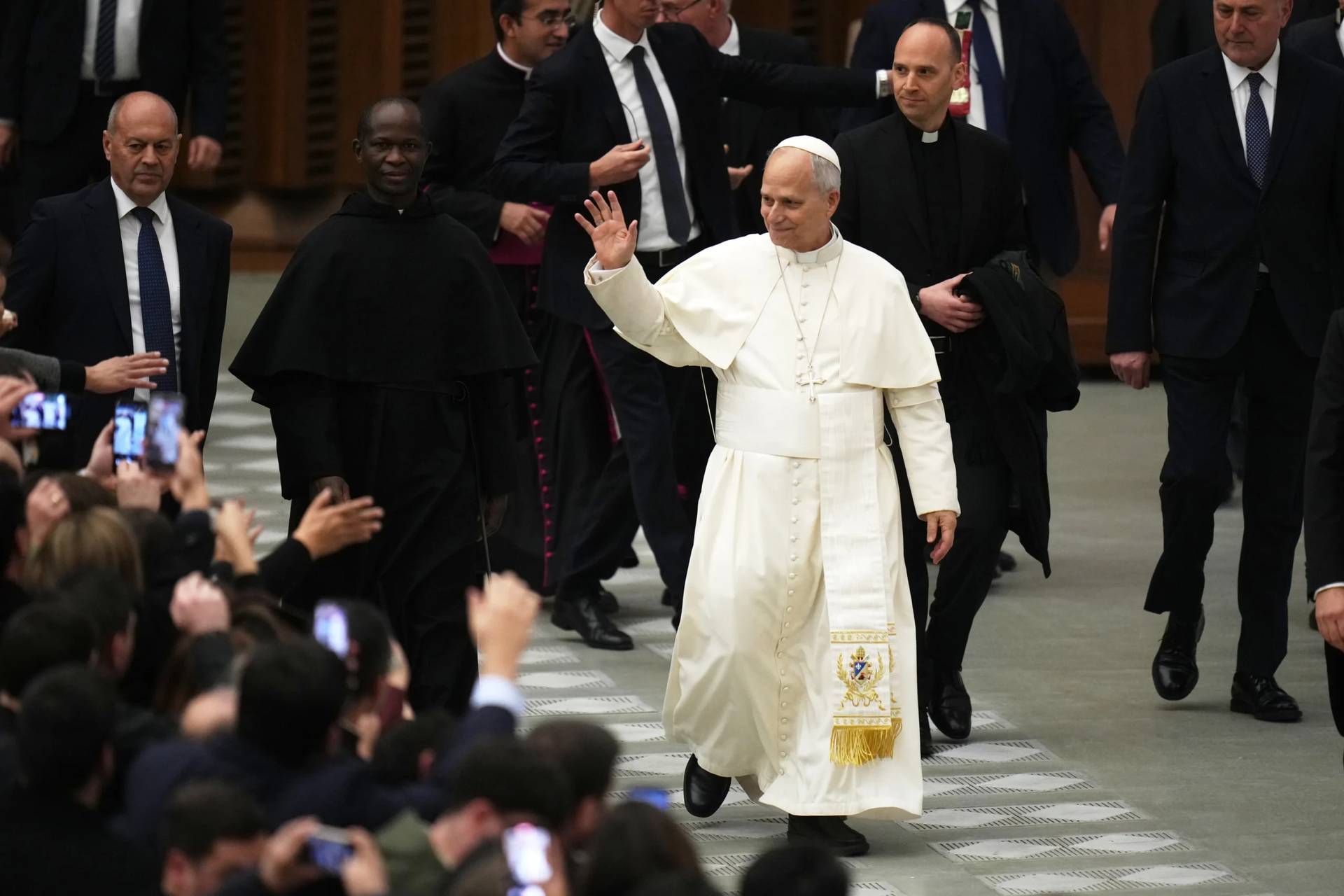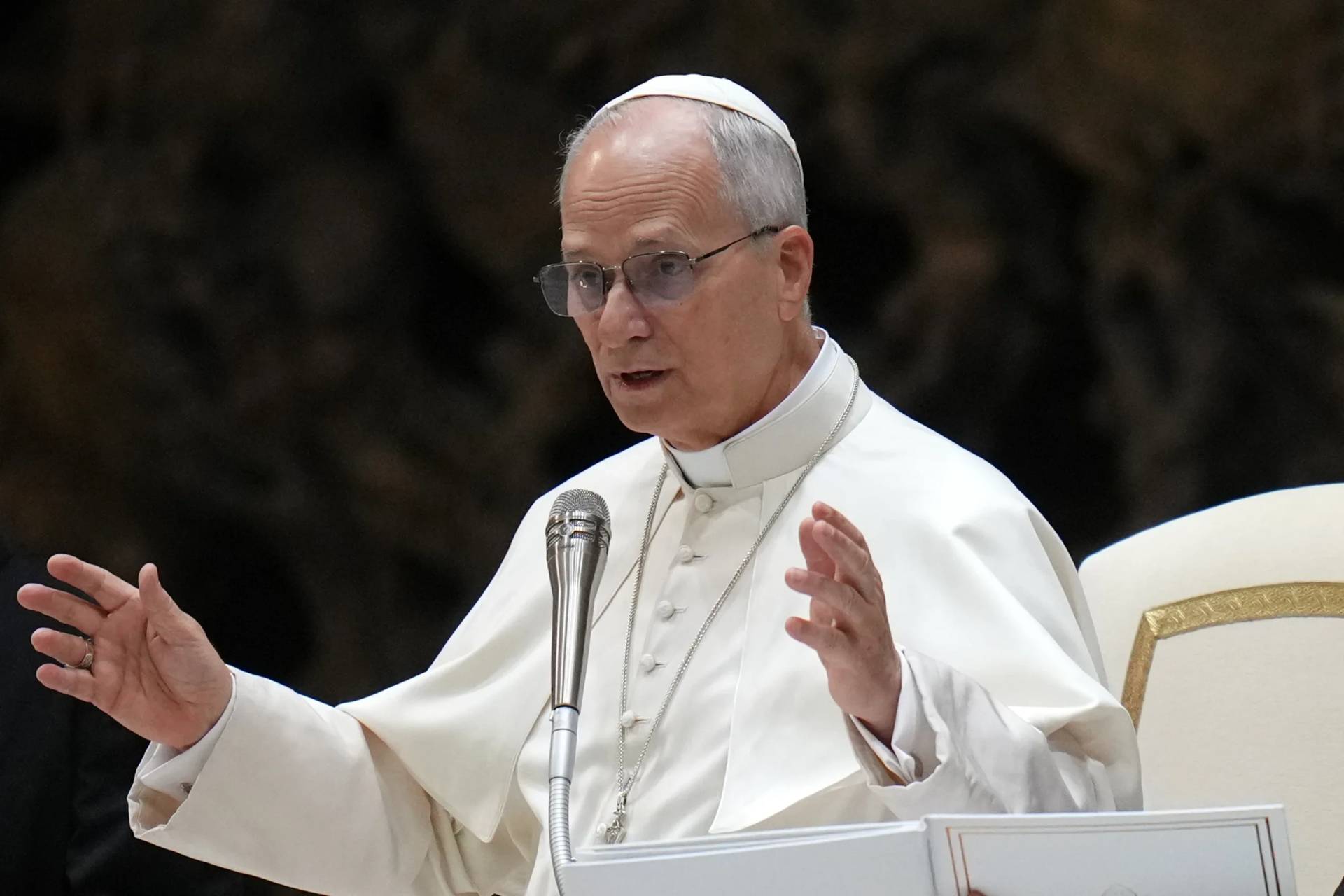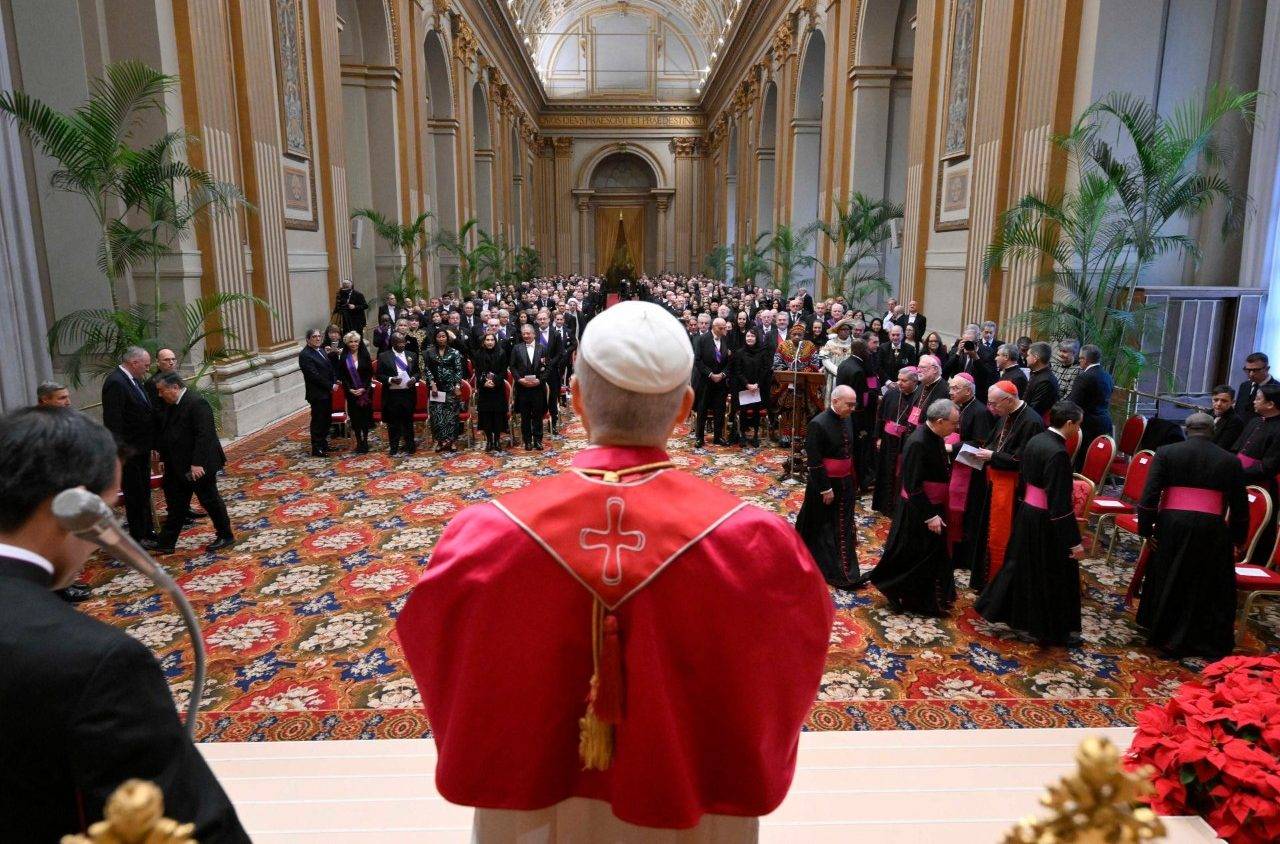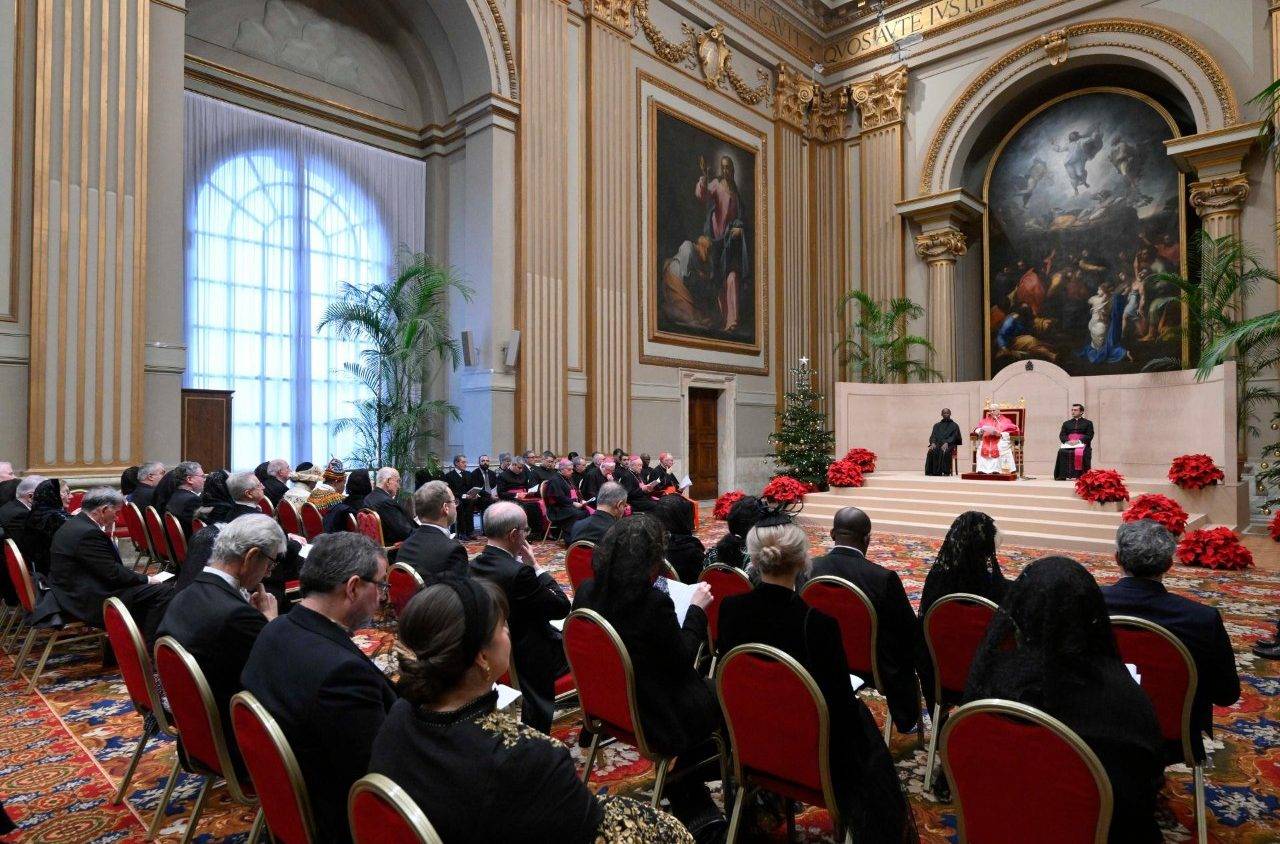ROME – If there’s one thing made clear by recent events, it’s that Pope Francis and his team does not believe the future of Catholicism will stem from the United States.
A recent article by two close friends of Francis that looks at a perceived alliance between fundamentalist Evangelicals and “Catholic integralists,” frowned at what it called an “ecumenism of hate” and offered a glimpse into what may be the pope’s personal perspective in this time of deep political and social divide in the U.S.
The Argentinian looks instead to the East, toward Russia and China.
Francis seems to have had an intuition that the profound changes taking place in the once great bastions of communism can offer a fertile ground for dialogue and the growth of Christianity in the context of an increasingly secular and individualistic West.
The pope has openly courted Russia and its vast number of Orthodox Christians, often incurring the criticism and disappointment of those who hoped to hear a stronger opposition from the Vatican towards Vladimir Putin’s authoritative, if not downright aggressive, internal and foreign policy.
The Holy See’s Secretary of State, Cardinal Pietro Parolin, is readying for an August trip to Moscow, which will be an important step in furthering Vatican-Russian relations. Meanwhile, the Vatican’s number two will likely find a willing listener in Putin, who longs to establish himself as the new upholder of morality and defender of persecuted Orthodox Christians in many areas of the Middle East.
Putin’s papal courtship
In a recent mini-documentary on Italy’s national television Rai, “Pope Francis, the pope of dialogue,” a placid-looking Parolin describes his hopes for the historic trip to the Motherland.
“I go to Russia as a collaborator to the Pope. As a collaborator of the one who wishes to build bridges in order to increase the ability to comprehend each other, understand each other and dialogue in the world,” Parolin said.
“In order to build a climate and an environment of justice and peace,” he added.
Most of the documentary is filled with other vague and open-ended propositions, but in some instances the character and direction of the trip emerges. Parolin mentions a Vatican “diplomacy that considers real factors” and Lucio Caracciolo, director of the Italian magazine Limes, refers to Francis as a “geopolitical pope.”
The documentary traces the careful steps that led Francis, early on in his pontificate, to extend the hand of dialogue from one periphery of the world to another, from the South American struggles for development to a Russia weighed down by economic sanctions.
Already in late 2013, Francis was largely responsible for helping to head off an anti-Assad Western offensive in Syria, after news broke that the government had used chemical weapons against its rebelling populace.
This was not done casually by the Vatican, as Catholic voices on the ground had shown support for the Assad regime, which seems to them less dangerous than an unknown and unpredictable alternative. Putin, from his side, has been a strong critic of efforts to impose democratic states in the Middle East and views the Syrian president as the only hope for stabilization in the crucial region.
Like any good suitor, Francis also demonstrated that he knows when to shut up. When Putin swept in to reclaim the Russian majority region of Crimea in the Ukraine, the pontiff restrained from openly denouncing the aggression, enduring a never-ending wave of criticism.
But those who think that this only served to please Putin’s expansionist ambitions forget that if it wasn’t for this ‘quiet nod’ Francis would never had been able to score one of his biggest ecumenical victories: The momentous meeting with the Patriarch Kirill of the Orthodox Church in Havana, Cuba.
The whole thing was a slam-dunk for the pontificate and undeniably for the Church. It was the first encounter between the leaders of the two faiths in at least 1,000 years (which is long even by Vatican standards), and the overture of a dialogue with a traditionally shy and untrusting Orthodox Church.

The joint statement maintained the neutral terms upheld by the Vatican until then, especially considering that Putin and the Orthodox Church in Russia can hardly be separated, kind of a buy one get one free deal. Francis was able to get the real prize (or the “800-pound gorilla” as Crux editor John Allen has called it) by simply ignoring its grumpy, chest-baring and overly protective older sister (Putin).
Any good flirtation must also offer a gift, something that the Vatican did not forget. The relics of St. Nicolas (aka Santa Clause), a saint profoundly loved and venerated by Orthodox Christians in Russia, were sent from the Italian town of Bari to Moscow in May.
According to the Orthodox Church, more than one million people visited the relics, including Putin himself. Not a bad way to inaugurate Parolin’s visit by any standard.
If the trip proves to be a success, the possibility that Francis may visit Moscow himself may come closer to becoming a reality.
One cannot help but think of the second ‘secret’ of Fatima, when Mary asked “for the Consecration of Russia to my Immaculate Heart,” a devotion to which Francis is strongly attached.
“This marriage is not to be performed”
Despite the many advances and points of common interest there remain several unresolved issues that may hinder the possibility of furthering bilateral relations. To quote Don Abbondio in the famous novel by Italian writer Manzoni, The Betrothed: “This marriage is not to be performed.”
While the Vatican and Russia agree on Syria, the Ukrainian question cannot so easily be dismissed. The Vatican sent a large amount of economic aid (about 12 million dollars) to Christians in the country, which did not please Putin, especially considering their strong anti-Russian stance.
Also many in the West and especially in Eastern European countries are openly opposed to Russia’s hegemonic stance and do not look kindly to the pope’s Ostpolitik 2.0, similar to the efforts made by Pope Paul VI to dialogue with communist countries.
One more obstacle is the United States, which has also pursued – though not without diplomatic hiccoughs – an easing of relations with Russia. Francis admitted to not looking kindly on the arrival of Trump as Putin’s newest suitor.
During a recent interview with Italian newspaper La Repubblica, the pope said he feared “very dangerous alliances between powers that have a distorted view of the world,” mentioning the United States and Russia as an example.
Thus, Francis distanced himself from the traditional Vatican position supporting further dialogue between the former archenemies. In the interview, the pope mentions immigration as a major concern on the matter, but it’s difficult in his case to understand the “real factors.”
It is more likely that the “distorted view of the world” is the main issue, and that possibly the pontiff fears the global consequences of a Trump-Putin alliance.
One final hurdle stands in the way of the marriage: Getting the Orthodox Christians in Russia to buy into it. This is no small feat considering that a Pew Research Center survey found that only 17 percent of Orthodox Christians in Russia wish to enter into communion with the Catholic Church.
Ironically, that study found that the number doubles (34 percent) among Ukrainian Orthodox.
We will have to wait and see if Parolin, with the generous intercession of St. Nicholas, will be able to change their minds. To quote Manzoni once more, “The high doom must be pronounced by times to come.”













